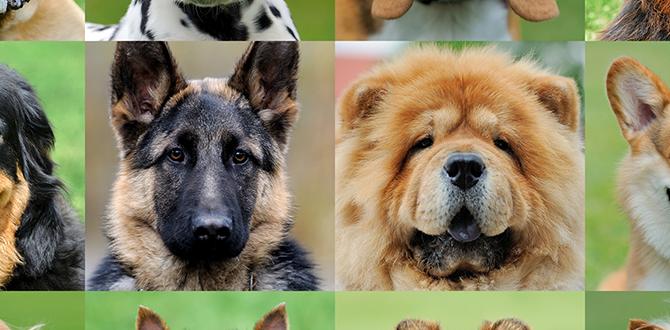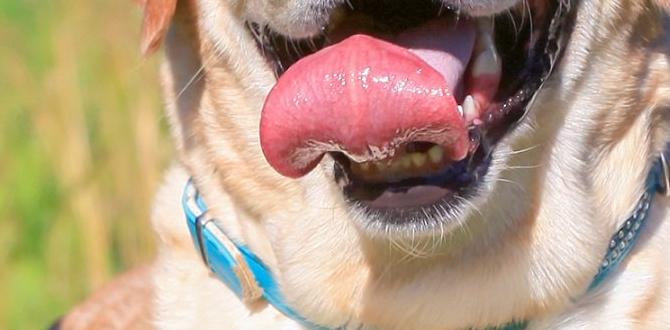Have you ever wondered why dogs act differently at night? Maybe your dog barks or roams around. You might even catch them staring into the dark. These mysterious actions are part of dog behavior at night naturally. Let’s explore what makes our furry friends tick when the sun goes down.
Imagine your dog as a superhero. By day, they’re your playful buddy. By night, their senses awaken, like a superhero’s powers. What makes them stay alert or restless? It’s a world full of interesting mysteries!
Key Takeaways
- Dogs have heightened senses at night for safety.
- Nighttime behavior often includes barking and wandering.
- Some dogs may feel anxious in the dark.
- Understanding dog behavior at night naturally helps owners.
- Dogs may follow instincts like guarding the home.
Why Dogs Bark at Night
Dogs bark at night for several reasons. They might hear something you can’t. A rustling leaf or a distant car can catch their attention. Their hearing is much better than ours. This makes them excellent nighttime guards. Sometimes, dogs bark because they feel lonely. Howling is a way to communicate with other dogs. They might also be bored and want attention.
- Dogs have sensitive hearing.
- Barking can signal loneliness.
- Howling connects with other dogs.
- Boredom can cause barking.
- Guard instinct prompts barking.
- Noises often trigger barking.
- Dogs alert owners through barking.
To manage barking, ensure your dog feels secure. Provide toys and a cozy bed. This can make them feel more at home. Training them to bark less is helpful too. Sometimes, just a little comfort can calm them. Nighttime routines can make a big difference.
Fun Fact or Stats : Dogs can hear sounds four times farther away than humans!
Do Dogs Bark More at Night?
Yes, many dogs bark more at night. But why? The world is quieter, so small noises stand out. Dogs hear these sounds clearly. Imagine being in a silent room and hearing a pin drop. That’s how dogs feel at night. Their barking is a natural response. Some dogs bark to protect their territory. They want to keep their home safe.
How to Reduce Night Barking
Want to reduce your dog’s night barking? Give them plenty of exercise during the day. A tired dog is a calm dog. Also, check their sleeping area. Is it comfortable? Is it too noisy or too quiet? Sometimes adding a soft light helps. You can train dogs to bark less with patience and rewards. Remember, consistency is key!
Is Night Barking a Sign of Trouble?
Is your dog’s night barking a sign of trouble? Sometimes, yes. If your dog suddenly barks more, check for health issues. Maybe they’re in pain or scared. Look for other signs like limping or whining. A vet visit might be needed. But often, barking is just part of dog behavior at night naturally. Keep an eye on new patterns though!
Why Dogs Wander at Night
Does your dog wander around the house at night? This is common behavior. Dogs are naturally curious. New smells and sounds at night can be exciting. Some dogs feel the need to patrol their home. This is their way of ensuring safety. Older dogs might wander due to confusion. This can be a sign of cognitive changes.
- Dogs are curious by nature.
- New smells attract them at night.
- Patrolling is a guard instinct.
- Wandering can signal confusion.
- Older dogs may experience cognitive changes.
- Nighttime exploration is common.
- Natural instincts may drive wandering.
To help, establish a nighttime routine. Secure your home to ensure their safety. Provide a comfortable sleeping area. Walk them before bedtime to reduce energy. If wandering continues, consider talking to a vet. They can provide guidance on nighttime behavior.
Fun Fact or Stats : Dogs have about 300 million smell receptors compared to humans’ 6 million!
What Triggers Night Wandering?
What makes dogs wander at night? Nighttime brings new scents and sounds. Dogs are curious explorers. They respond to changes in their environment. Imagine discovering a new playground every night. Some dogs wander to check everything is alright. It’s their way of ensuring safety. Older dogs might wander due to confusion.
Does Wandering Affect Sleep?
Does your dog’s wandering affect their sleep? Yes, it can. Wandering takes away restful sleep time. Dogs need sleep to stay healthy. Lack of sleep can make them tired during the day. If they wander often, their routine may be disrupted. Ensuring your dog has a good sleep environment helps reduce wandering.
How to Stop Night Wandering
Want to stop your dog’s night wandering? Establish a consistent bedtime routine. Make their sleeping area cozy and inviting. Ensure they have enough exercise during the day. Limit nighttime distractions like noise or lights. If wandering continues, consult a vet for advice. Training and comfort are key to reducing wandering.
Why Dogs Howl at Night
Have you heard your dog howl at night? This is a natural behavior. Dogs howl to communicate with others. It’s like joining a dog choir. At night, sounds travel further, making howling effective. Dogs might also howl if they feel lonely. They use howling to express emotions like sadness or excitement. Some breeds naturally howl more than others.
- Howling is a form of communication.
- Night sounds encourage howling.
- Dogs express emotions through howling.
- Some breeds howl more naturally.
- Howling signals loneliness.
- Dogs join distant howling sounds.
- Communication is key to howling.
Understanding your dog’s howling can help manage it. Provide companionship if they’re lonely. Training can also reduce howling. Engage them with toys or music to distract them. Remember, howling is part of dog behavior at night naturally. It’s their way of talking to the world outside!
Fun Fact or Stats : Wolves and many dog breeds use howling to communicate over long distances!
What Sounds Trigger Howling?
What makes dogs howl at night? Sounds can trigger howling, like sirens or other dogs. Imagine hearing your favorite song from afar. Dogs respond similarly to certain sounds. It’s a natural instinct. They join in to communicate. Sometimes, a simple sound can start a symphony of howls.
Is Howling a Sign of Anxiety?
Is your dog’s howling a sign of anxiety? It can be. Dogs might howl due to separation anxiety. They feel worried when left alone. Howling is a way to express their feelings. Check for other signs like pacing or panting. Reducing separation anxiety can help decrease howling.
Can Training Stop Howling?
Can you train your dog to stop howling? Yes, with patience. Use positive reinforcement to teach quiet behavior. Reward them when they’re calm. Gradually increase the time they’re alone to reduce anxiety. Consistent training helps. Remember, some howling is natural, but training can manage excessive noise.
Dog Sleeping Patterns at Night
Do you know dogs have different sleeping patterns than humans? Dogs sleep in short cycles. They wake often, even during the night. This is part of their natural behavior. Some dogs are light sleepers. Others may sleep soundly through the night. Puppies and older dogs usually need more sleep. Understanding their sleep helps ensure they rest well.
- Dogs have short sleep cycles.
- They wake often during the night.
- Puppies need more sleep than adults.
- Older dogs may sleep more too.
- Light sleepers wake easily.
- Understanding sleep patterns helps owners.
- Rest is crucial for dog health.
Creating a comfortable sleep environment is essential. Provide a soft bed and quiet space. Ensure they’re not hungry or thirsty. A tired dog from daytime activities sleeps better. Consistency in their sleep routine helps them rest well. If sleep issues persist, consult a vet for advice.
Fun Fact or Stats : Dogs can spend 12 to 14 hours a day sleeping!
Do Dogs Dream Like Humans?
Do dogs dream like humans? Yes, they do! Dogs experience dreams during deep sleep. Have you noticed your dog twitching or moving their paws while asleep? That’s a sign of dreaming. They might dream about chasing toys or playing. Experts believe their dreams are similar to ours. Dreaming is a natural part of dog behavior at night naturally.
Why Do Dogs Sleep in Short Cycles?
Why do dogs have short sleep cycles? Dogs’ sleep patterns evolved from their wild ancestors. Short cycles help them stay alert. This is important for safety. Even during sleep, they’re ready to respond to threats. It’s like having one eye open! Understanding their sleep cycles helps us ensure their good rest.
How to Improve Your Dog’s Sleep
Want to improve your dog’s sleep? Create a peaceful sleeping area. Use a soft bed in a quiet space. Ensure they get enough exercise during the day. A tired dog sleeps better. Regular bedtimes help establish a routine. If sleep issues continue, talk to your vet for advice. Good sleep is vital for their health.
Dog Anxiety at Night
Does your dog seem anxious at night? This is common among dogs. Nighttime can bring many triggers. Darkness and silence might cause anxiety. Some dogs fear being alone in the dark. They might whine, pace, or bark. Understanding their anxiety is crucial. Providing comfort helps them feel secure.
- Night triggers anxiety in some dogs.
- Darkness can be intimidating.
- Alone time may cause fear.
- Anxiety leads to whining.
- Comfort reduces nighttime anxiety.
- Understanding helps manage anxiety.
- Pacing is a sign of anxiety.
To ease anxiety, provide a nightlight for comfort. Create a cozy sleeping area. A regular bedtime routine helps reduce stress. Consult a vet if anxiety persists. They can offer strategies to help your dog feel calm. Remember, dog behavior at night naturally includes anxiety for some dogs.
Fun Fact or Stats : Up to 29% of dogs show anxiety when left alone!
How Does Anxiety Look in Dogs?
How can you tell if your dog is anxious at night? Look for signs like pacing, whining, or hiding. Some dogs may tremble or refuse to eat. Anxiety can make them restless. If your dog shows these signs, try comforting them. Provide a safe space to help them feel secure at night.
Does Comfort Help Anxious Dogs?
Does providing comfort help anxious dogs? Yes, it can make a big difference. A soft bed and familiar toys create a soothing environment. Sometimes playing soft music helps. Your presence can be comforting too. If anxiety is severe, a vet might recommend further steps. Comfort is key to managing anxiety.
When to Seek Help for Anxiety
When should you seek help for your dog’s anxiety? If anxiety affects their daily life, talk to a vet. They can diagnose and suggest treatments. Sometimes, anxiety needs professional attention. Vets offer guidance and options to manage anxiety. Don’t ignore severe symptoms. Help is available to make your dog feel better.
Conclusion
Understanding dog behavior at night naturally helps us connect with our pets. From barking to wandering, each behavior has a reason. By learning their nighttime habits, we can support their needs. Remember, every dog is unique. Pay attention to their signals and provide comfort. A well-rested and happy dog is a wonderful companion.
FAQs
Question: Why does my dog bark at night?
Answer: Most dogs bark at night because they hear noises or feel anxious. Their senses are heightened in the dark. This behavior is part of dog behavior at night naturally.
Question: How can I stop my dog’s night wandering?
Answer: Establish a consistent bedtime routine. Make their sleeping area comfortable. Ensure they get enough exercise during the day. If wandering continues, consult a vet for guidance.
Question: Is howling at night normal for dogs?
Answer: Yes, howling is a natural behavior for dogs. They use it to communicate with other dogs. Nighttime sounds can trigger howling. It’s part of dog behavior at night naturally.
Question: Why does my dog seem anxious at night?
Answer: Darkness and silence can be intimidating for some dogs. They may feel anxious alone. Providing comfort and a cozy sleeping area can help reduce anxiety.
Question: Can I train my dog to sleep better at night?
Answer: Yes, you can improve your dog’s sleep with a regular bedtime routine. Ensure they have a comfortable sleeping area. Consistent exercise during the day helps tire them out for better sleep.
Question: What if my dog’s nighttime behavior changes suddenly?
Answer: Sudden changes in behavior might indicate health issues. Consult a vet if you notice unusual patterns. Early action can address potential problems affecting your dog’s well-being.
Meet Elyse Colburn, the devoted canine companion and storyteller behind the enchanting world of “Tales, Tails, and Adventures Unleashed.” A passionate dog enthusiast with a heart full of paw prints, Elyse Colburn shares heartwarming tales and insightful adventures, celebrating the joy, loyalty, and endless antics that make every dog a true hero. Join Elyse Colburn on this tail-wagging journey, where every post is a love letter to our four-legged friends.








